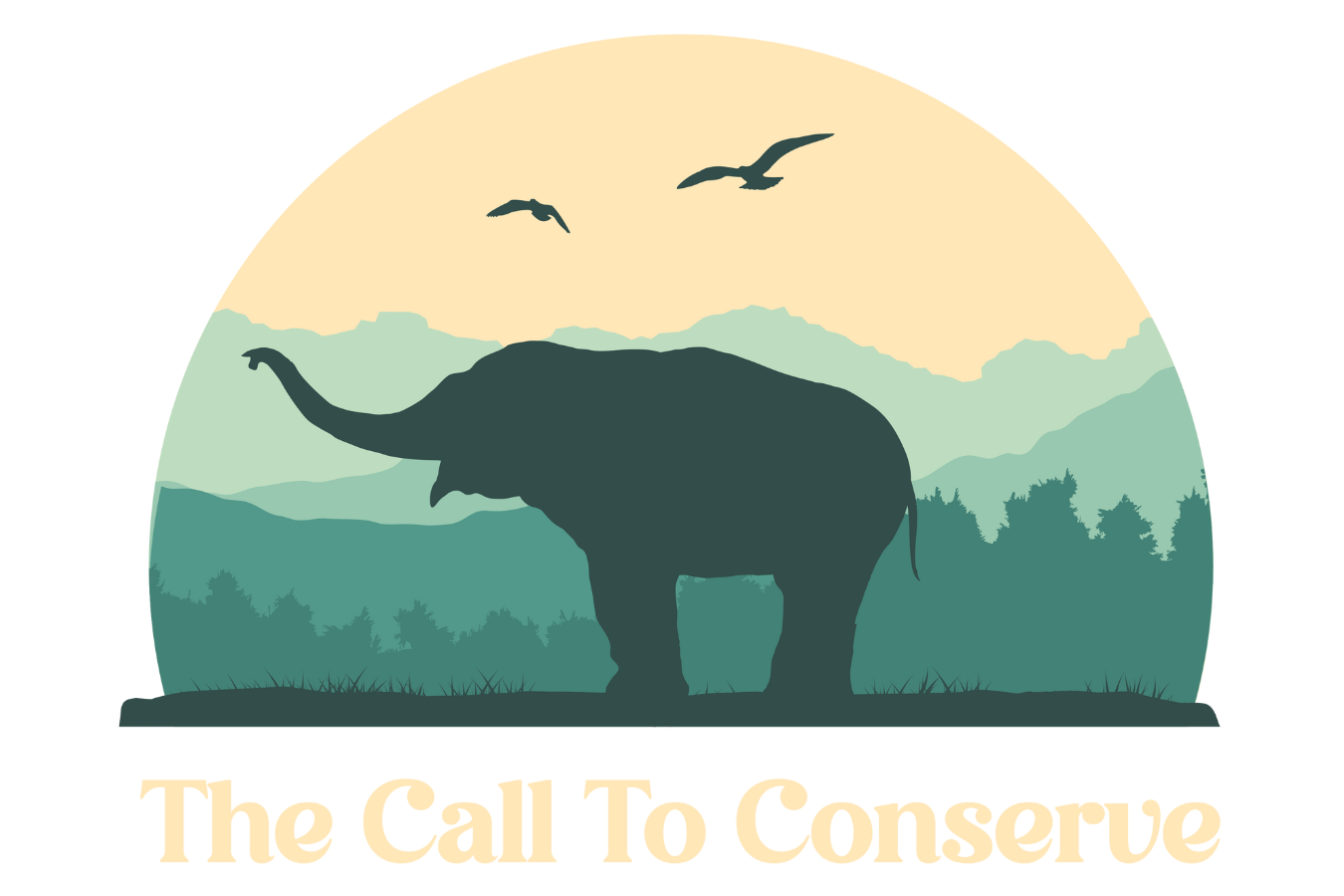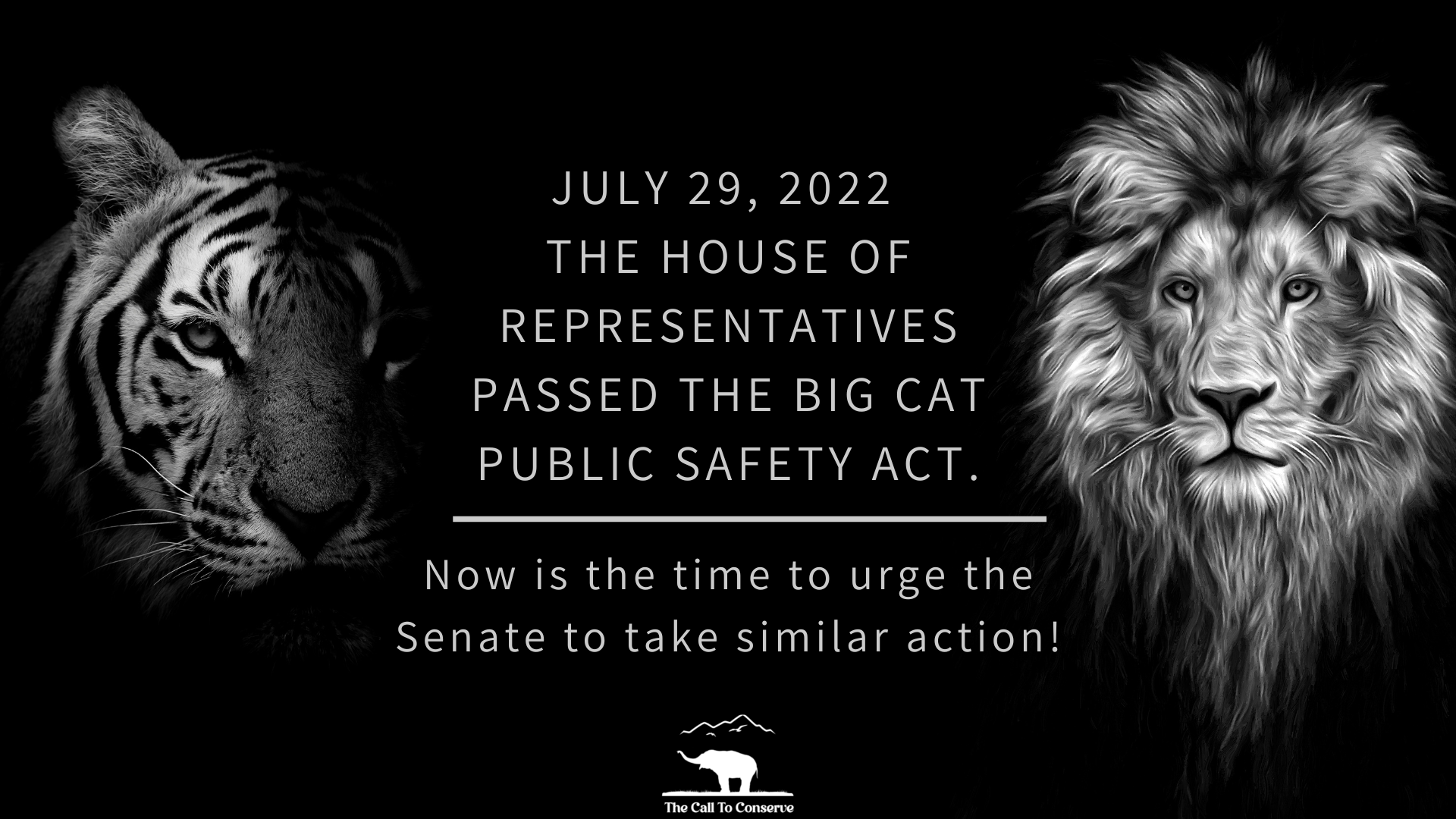The Big Cat Public Safety Act Moves to the Senate
There are more tigers in captivity in the United States than there are left in the wild globally. Big cats have become a symbol of status, power, and intrigue, so much so that people illegally purchase cubs and keep them in American backyards. Without any thought about how large these animals get and their predatory nature, the cats end up in situations with poor welfare.
After the “Tiger King” air highlighted roadside attractions and brought to light their existence as inadequate facilities with low welfare standards, Americans became more aware of unethical breeding, performances, and interactions with big cats. This awareness alone has proven invaluable for animal welfare and in condemning facilities with no conservation value.
That’s why The Big Cat Public Safety Act has been introduced into legislation to make the private possession of lions, tigers, leopards, cheetahs, jaguars, cougars, or any hybrids of these species illegal. This would have the ability to reduce the illicit wildlife trade while ensuring more cats don’t have to endure the cruelty that many have around the United States.
The Big Cat Public Safety Act Helps Big Cats by:
Prohibiting public interaction with big cats. This includes blocking activities like cub petting, bottle feeding, and feeding fully grown cats. Read more about why these activities are harmful here.
Prohibiting the breeding of all big cats— effectively closing down all these facilities in due time.
Prohibits the buying and selling of new big cats into these facilities.
Requiring registration to track what these cats are being used for more closely.
This can help weed out illegitimate facilities that simply exist to profit off wildlife without contributing to conservation. And the fact is, there’s no reason Americans need to be possessing large cats. Under the current legislation, facilities that exploit and abuse cats for profit can legally claim themselves to be rescues or sanctuaries. This alters the public’s perception of their intent and involvement in conservation when in fact, they are actively working against conservation.
What Happens to Big Cats Already in Possession?
Doc Antle with one of his Myrtle Beach Safari Tigers.
This animal protection bill leaves room for current owners of these exotic species to keep their animals as long as they register the animal so that animal control and first responders know that a big cat is residing in the region. This can improve response times when a dangerous incident occurs or on the chance that the animal escapes and is a public safety concern.
The registration process also ensures that cats aren’t being used to continue fueling the black market trade of exotic species parts.
"It's pretty unbelievable but most of them disappear. They're killed, sold into the exotic animal trade for their body parts or sold to the neighbor as a pet. You never know who has what animal and for what reason," said Bobbi Brink, founder and director of Lions Tigers & Bears.
Well-known players in the animal exploitation and illegal wildlife trade industries, like Doc Antle, founder of Myrtle Beach Safari who was recently indicted for wildlife trafficking, animal cruelty, money laundering, and additional charges, have voiced dismay towards this act as it would impact their business. This is yet another sign that we’re heading in the right direction! With some of the most unethical and exploitative facilities like Myrtle Beach Safari being unable to get new illegally obtained and traded wild cats, they would be forced to pivot away from cats or close once all their existing animals die.
Will The Big Cat Public Safety Bill Pass?
The bill passed the US House of Representatives on July 29, 2022, on World Tiger Day of all days, by a vote of 278 to 134. This effort has been sponsored and championed by Rep. Michael Quigley, D-Ill., and Rep. Brian Fitzpatrick, R-Pa, and is now to move to the US Senate with hopes of a similar outcome. Big cat advocates around the country believe there is a real chance that this bill will pass, which would be a significant step forward for big cat welfare and conservation!
"As a member of the bipartisan Congressional Animal Protection Caucus, I am committed to ensuring our government is doing its part to promote animal welfare. For too long, big cats have been mistreated, exploited, and abused in private roadside zoos. Our Big Cat Public Safety Act will prohibit the unlicensed, private possession of big cats and restrict their direct contact with the public, and I am proud to again join Congressman Quigley in championing this bipartisan bill." — Rep. Brian Fitzpatrick, R-Pa
This bill was first introduced in 2012 and, in 2020, was passed by the House but not by the Senate. It’s long overdue for action on this bill to bring about more change. With the amount of press unethical facilities have received in late, conservationists and animal advocates alike hope 2022 is the year!
You can help get this bill passed by contacting your local government in support of this bill and sharing this post to help educate others about why animal protection bills must get passed and enforced!
🐘 We're proud to partner with SafetyWing to provide travel insurance for ethical travelers.
When you use our affiliate link, you’re directly supporting our nonprofit’s work in wildlife welfare and ethical tourism.
Learn More & Get Covered


